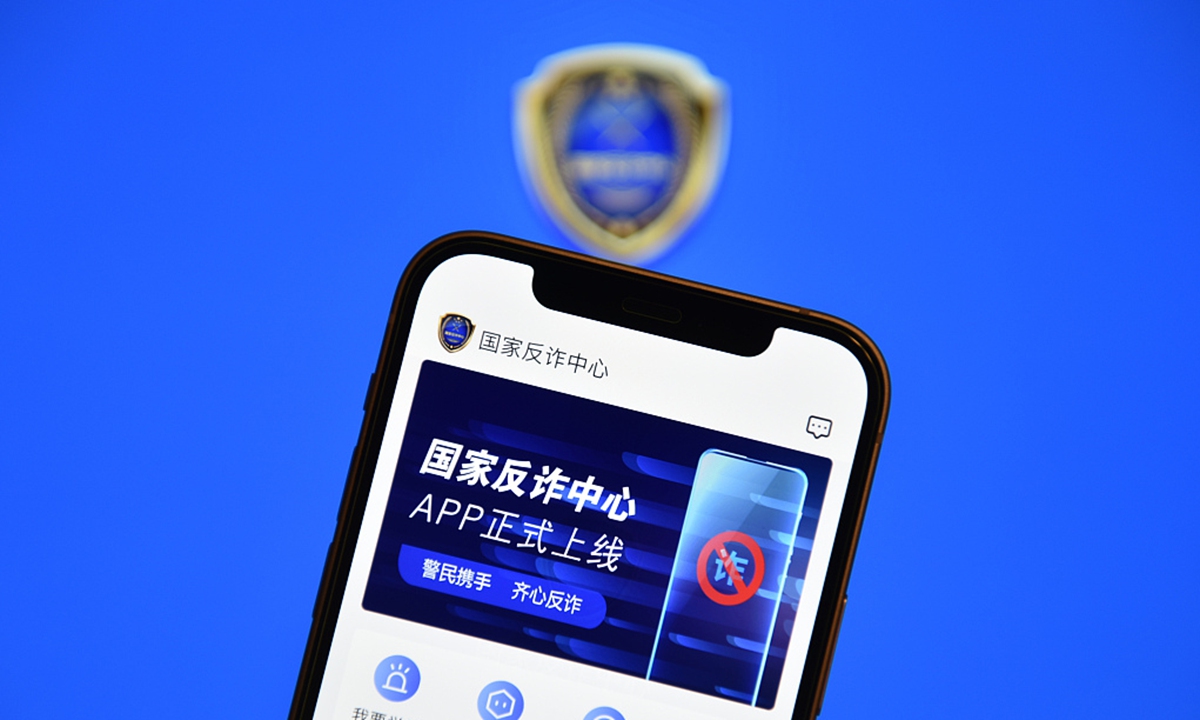Popular Chinese anti-fraud app slammed by Western media as tool to 'track access' to foreign websites

Photo: VCG
An anti-fraud app in China has recently gone viral on Chinese social media platforms, winning wide recognition from Chinese netizens who have applauded its timely and accurate identification of fraud.
However, the app has been described by some Western media reports as a tool used by the Chinese government to track access to overseas financial news sites.
"Chinese police are using a new anti-fraud app installed on more than 200m mobile phones to identify and question people who have viewed overseas financial news sites, according to individuals summoned by the authorities," the UK-based Financial Times reported on Wednesday.
It added that a person from Shanghai was contacted by police after accessing a US financial news service, and was then asked whether he had contacts abroad and regularly visited overseas websites. In quoting another "user" from East China's Shandong Province, it said the app showed he had "visited 'highly dangerous' overseas information providers, including Bloomberg."
However, the report did not specify any details as to why the police contacted him, or whether the "user" had visited other suspicious websites during the period, or what the websites asked him to do.
People who have downloaded the app told the Global Times on Wednesday that they have not been "summoned" by authorities after viewing foreign media websites or financial information providers.
The app, developed by the Criminal Investigation Department at the Ministry of Public Security, has shot to the top of the download list in the iOS App Store, the Global Times has found.
Named the "National Anti-fraud Center," the app is designed to remind users of suspected fraudulent activities in various forms, including phone calls, text messages, or dubious apps and websites.
It also offers a convenient reporting service in case users get involved in suspicious activities in their daily life. Dozens of anti-fraud lectures are also included in the app.
The download page has specified a user privacy policy, which states that the collection and usage of personal information will strictly comply with the principles of protecting personal rights and interests, with clear indication and authorization, and processing of information only when necessary and within the minimum frequency and scope.
China has cracked a total of about 185,000 telecommunication fraud cases from January to July this year, a 40 percent increase from that of last year, state broadcaster China Central Television reported. Some 247,000 criminal suspects have been arrested, and the cases in June and July have seen a significant decrease of up to 12 percent.
A hot topic on China's Twitter-like Sina Weibo over recent days has been the popularity of the app in China. The topic reads "How impressive is the new anti-fraud app," and mentions the exposure of a criminal gang after the father of one of the gang members, who downloaded the app, received a warning phone call after talking to his son by phone. The topic has received over 41,000 comments as of press time.
In another case that drew widespread attention on the internet, a man from East China's Shandong Province deleted the app after finding it "annoying," as "every time when he talked with an acquaintance, the app reminded him that the acquaintance might be a scammer." However, after he deleted the app, he was scammed out of 200,000 yuan ($31,026), China News reported.
Global Times
